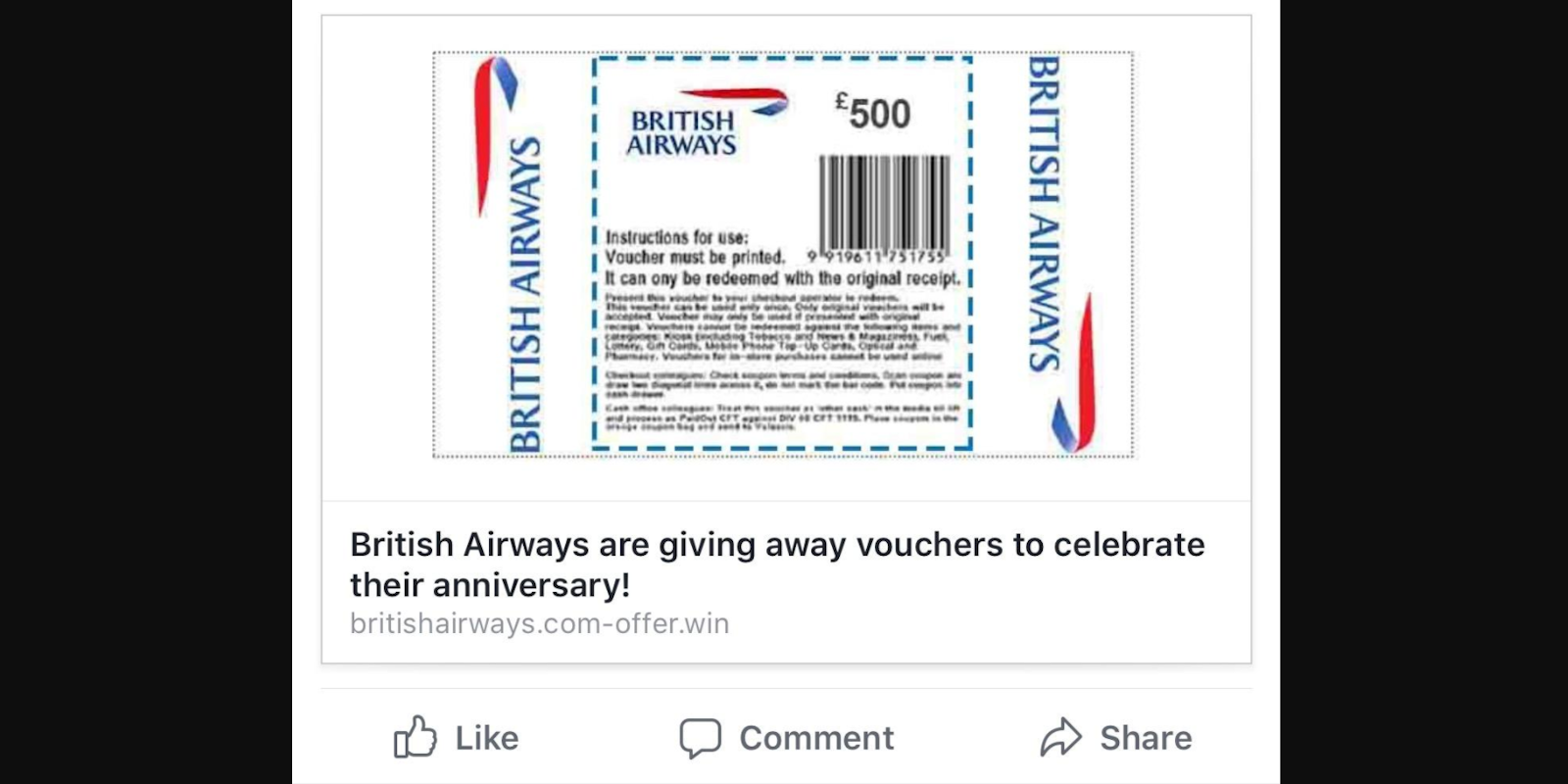You’ve seen them before: Those too-good-to-be-true ads that pop up on your Facebook feed every now and then. They may look tempting, but fight the urge to click because those ads are probably fake, and could cause a lot of damage if you press on them.
They come in many forms, but fake Facebook ads typically promise free goods or coupons and vouchers. For example, a $1,000 IKEA gift card scam went around the social site back in 2010, conning 40,000 users to sign up for “free trial offers.” Even before that, a former employee of Continental Airlines (now United) was charged for tricking people into paying $500 for fake tickets they could use anywhere in the world. Even big-box retailer Target ended up on the wrong end of a fake offer.
What happens if you press on one of these ads? If there’s a hacker on the other end, your computer could quickly get infected with malware. You’ll almost certainly be overwhelmed with pop-ups asking for your personal information, and you could even get your Facebook account shut down by sharing one of these posts, even if you weren’t aware of the potential dangers.
Airlines are hit particularly hard by fraudsters. In 2015, Air Canada was forced to warn its customers of a scam that circulated around Facebook.
https://www.facebook.com/aircanada/posts/958861660828396
And on Wednesday a fake British Airways coupon bounced around social media.
https://twitter.com/Sherwood_Police/status/907904983093440513
Many airlines now dedicate a section of their website to known scams and best practices for avoiding them.
Here are a couple of rules that will help you avoid online scams, especially those shared through social media. First, don’t press on any coupons that don’t link back to the subject’s official website or any ads that ask for money. Also, if it’s too good to be true, it probably is.
You can also check in with the Coupon Information Corporation’s list of known counterfeit coupons. But just because an ad isn’t posted doesn’t mean it’s safe.
H/T CBC News


